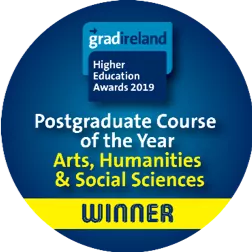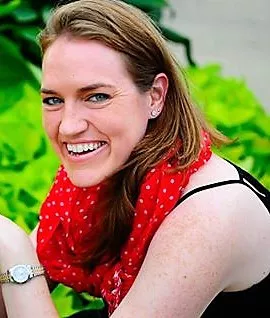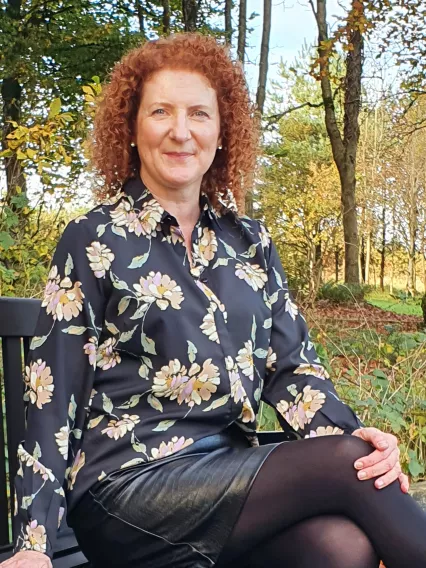
Course Details
Contact(s):
Apply Now
Read instructions on how to apply
Express InterestRegister your interest here for more information or to be notified when applications are open.
Brief Description
The programme equips graduates with the skills needed to design and develop multimedia content and technology-enhanced learning solutions. The need for this type of expertise is expanding consistently as companies and institutions worldwide rely increasingly on information and communication technologies (ICTs).

The purpose of this programme is to equip graduates with the skills needed to design and develop multimedia content and technology-enhanced learning solutions. The need for this type of expertise is expanding rapidly as more and more companies and institutions use information and communication technologies (ICTs).
On successful completion of the programme, graduates will be able to:
- Design online learning environments.
- Design and deliver instructional materials.
- Evaluate instructional tools and programmes.
- Evaluate design and development software applications.
- Use multimedia applications.
- Deploy and use Web 2.0 technologies to collaborate with peers.
- Manage complex writing and design projects.
- Communicate effectively in online and face-to-face environments.
- Write clear, correct, precise content.
The MA in Technical Communication and E-Learning is offered as a one-year, full-time course taught over two semesters, or as a two-year, part-time course taught over four semesters. Both the part-time and full-time programmes can be undertaken in a hybrid manner. There are on-campus workshops during both semesters. Both the 1 year full-time and 2 year part-time MA also provide an exit award of a Graduate Certificate or Graduate Diploma in Technical Communication and E-Learning for students who meet the academic requirements of the taught programme and do not proceed to the dissertation (30 ects).All students will access content and interact with lecturers and classmates through the university’s Virtual Learning Environment (VLE) and through scheduled on-campus workshops. The summer dissertation/ project will combine self-directed work and liaison with a project supervisor.
| FULL-TIME STRUCTURE | ||
|
Autumn Semester |
Spring Semester |
Summer Semester |
|
|
|
Part-time structure:
| PART-TIME STRUCTURE | |
| Year 1 | Year 2 |
Autumn Semester
|
Autumn Semester
|
Spring Semester
|
Spring Semester
|
|
Summer Semester No modules |
Summer Semester
|
Content of modules can be found by using the search option on the book of modules.
Applicants must have a primary degree in any discipline (2.2 honours or higher at Level 8 - National Qualifications Authority of Ireland). Applicants who do not have a primary degree can apply to be considered through RPL (Recognition of Prior Learning).
Applicants must have a high standard of written English, and will be required to submit a personal statement outlining their reasons for applying, as part of the application process. Applicants are expected to be proficient in using standard office applications (e.g. MS Word, PowerPoint, and Excel). They must also be proficient in searching the Internet and familiar with using electronic communication tools (including email, chat rooms, and discussion forums). Applicants may be required to attend/ participate in interviews to determine their suitability for the programme.
WHAT TO INCLUDE WITH YOUR APPLICATION:
- Qualification transcripts and certificates
- A copy of your birth certificate or passport
- A copy of your CV
- A personal statement
- If your qualifications have been obtained in a country where English is an official language this will suffice.
- If this is not available, the following additional documents must be provided:
- English translation of your qualification(s)/transcripts AND
- English language competency certificate
- Please click here for Further Information on English Language Requirements
Full Time:
EU - €7,544
Non- EU - €18,000
Part Time:
EU - €4,076 per annum
Non- EU - €9,700 per annum
Further information on fees and payment of fees is available from the Student Fees Office website. All fee related queries should be directed to the Student Fees Office (Phone: +353 61 213 007 or email student.fees.office@ul.ie.)
Graduates will be unique in Ireland, qualified to work as both instructional designers and technical writers, and in a variety of related roles such as editing, web design, interaction design, and technology journalism.
Graduate job titles include:
Technical writer
Instructional designer
Digital project specialist
Learning developer
E-learning support specialist
Information designer
Information developer
Content developer
Publication manager
Trainer
Content curator
Information development manager
Content specialist
Digital editor
Web content strategist
Below is a testimonial from a recent graduate of the programme.

Joy Siegel “For someone who loves learning and technology, the MA in Technical Communication and E-Learning is a great fit. I smile as we preview upcoming assignments and marvel at what our lecturers will have us know by the end of a year. After countless hours on the computer, evaluating information, double checking if I avoided American spellings, and completing assignments, I happily return to the work each day. I am forever grateful for this experience, and it’s one that I would recommend to anyone interested in the field”.

Elaine O'Shea, "Because of it’s blended delivery, the 2-year part-time MA in Technical Communication and e-Learning allowed me to obtain an MA while also working fulltime and raising a family. I really enjoyed the course content, from the clear concise writing to developing e-learning content. I find it very beneficial to now have the research to back up decisions made when writing or creating content, particularly the pedagogical theory for e-Learning content creation. The MA has allowed me to change career and move into a completely new area, with the result that I have now worked as both a technical writer and instructional designer. I’ve never looked back".
Still Curious?
The team from the Faculty of Arts, Humanities & Social Sciences host subject webinars and 1:1 calls to support future students on their journey to Stay Curious. If you would like to learn more, or ask questions at an online information session, click below.
Online Information Sessions
Graduate and Professional Studies
+353 (0)61 234377
University of Limerick, Limerick, Ireland
Contact Us | Download Prospectus | Sign up to stay informed | Quality and Feedback